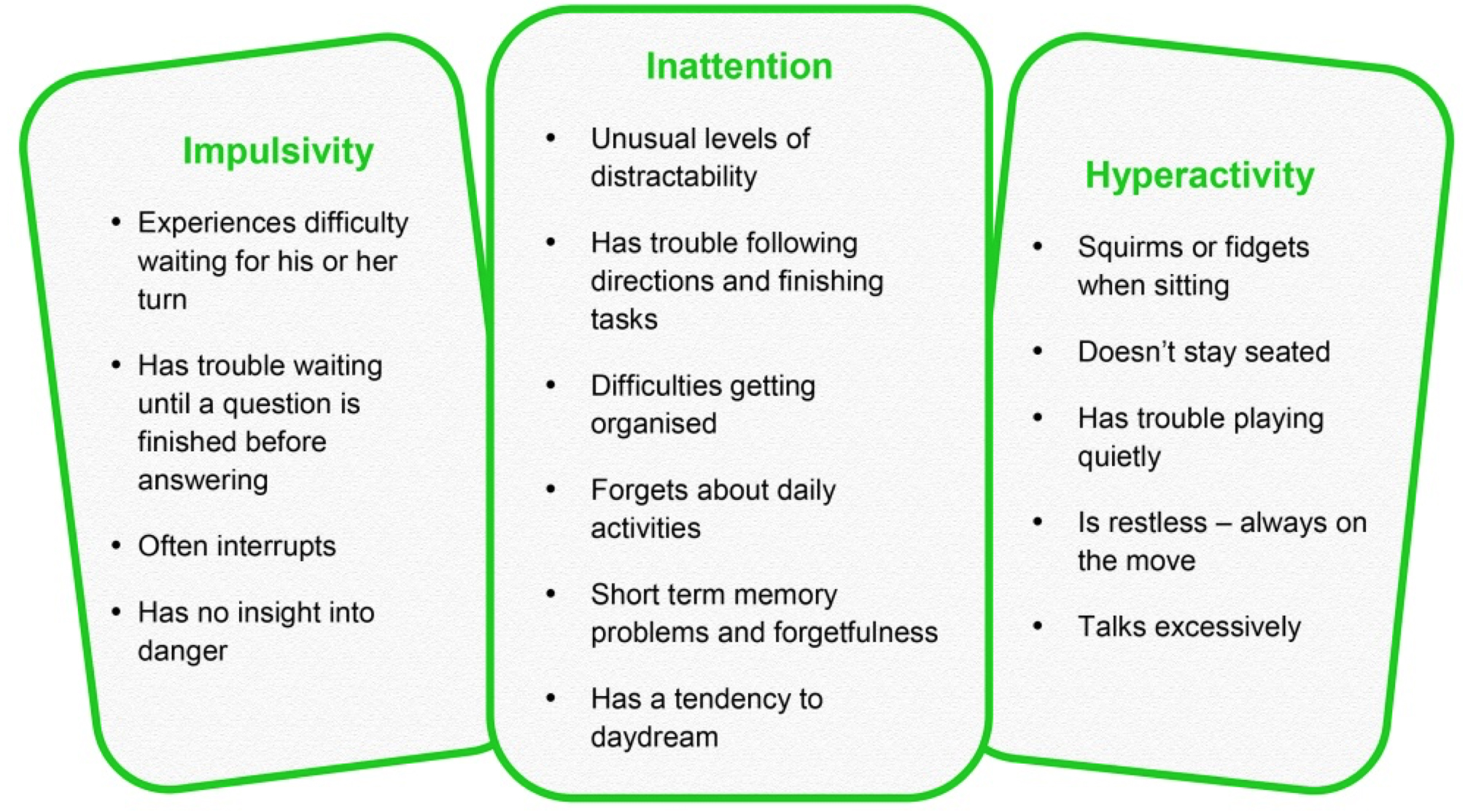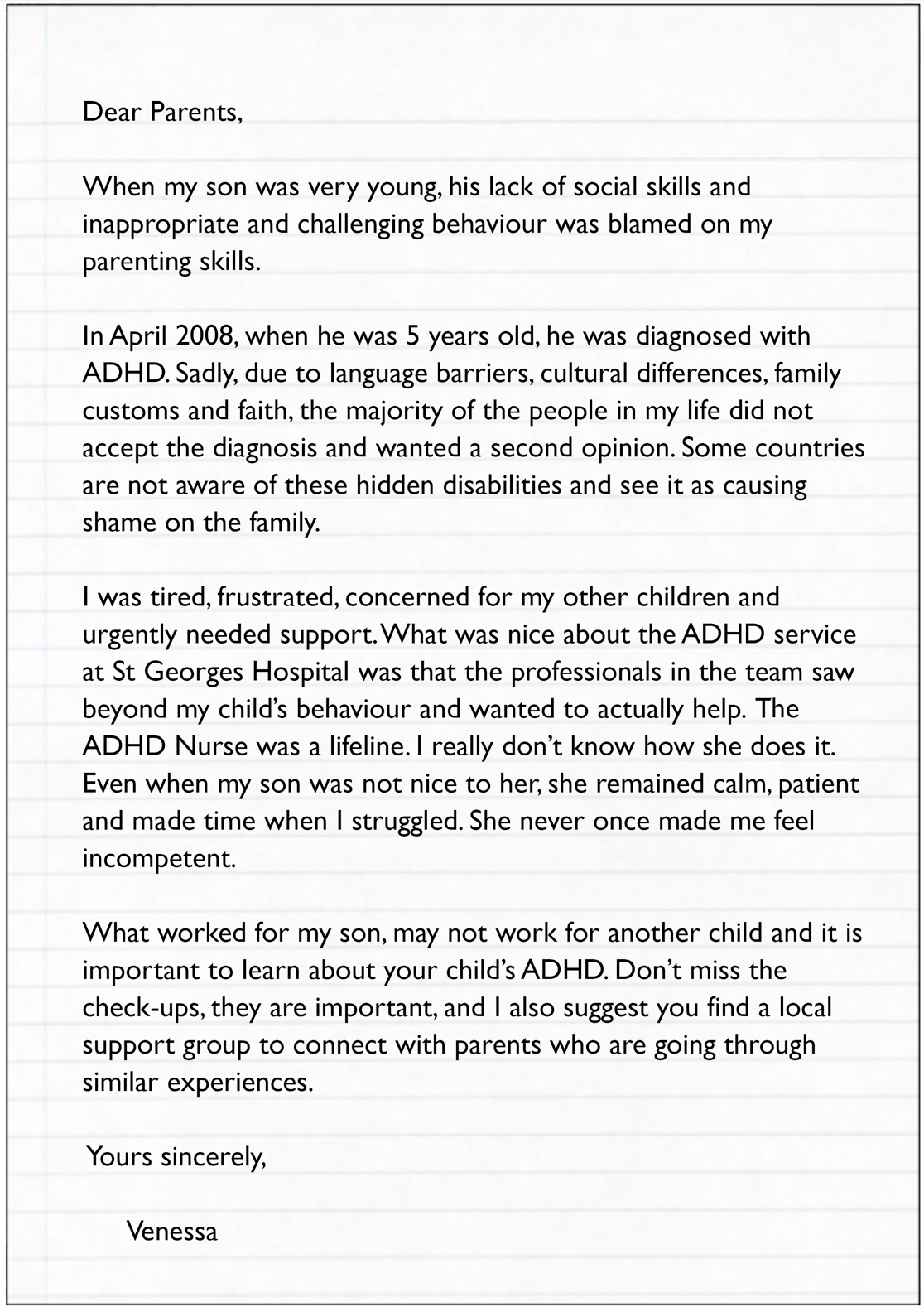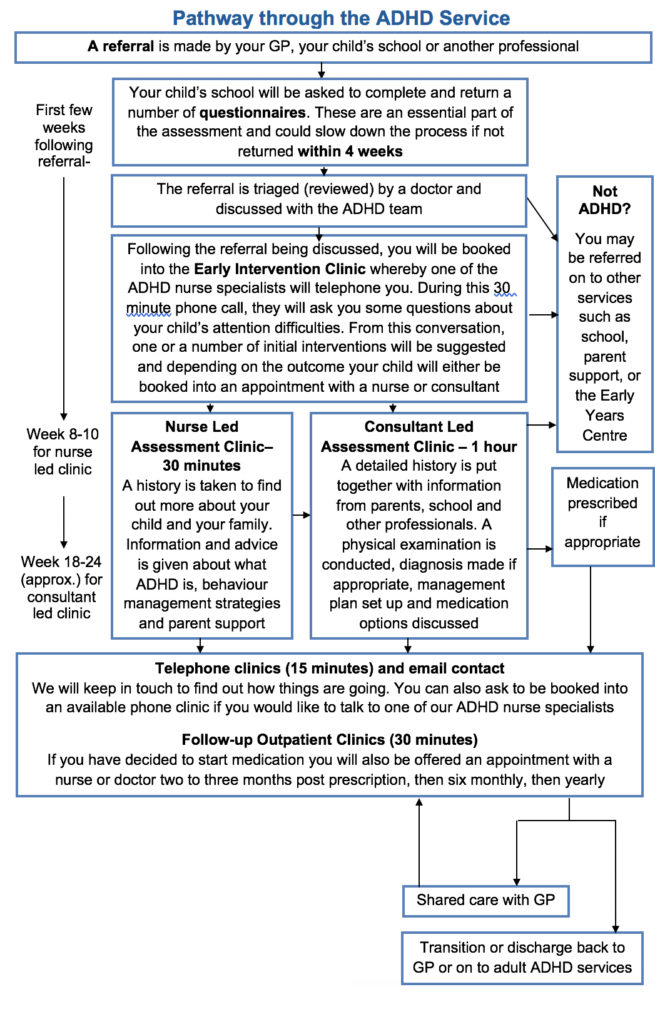ADHD Service
On this page:
- About our service
- What are ADHD and ADD?
- Getting help
- Why has my child been referred?
- Pathway through the ADHD Service
- Interventions we offer
- Information about medication
- A parent’s story
- Useful sources of information
- Contact us
About our service
We are a specialist Attention Deficit Hyperactivity Disorder (ADHD) service within the developmental paediatric team. The service supports parents and children through the assessment, diagnosis and management of ADHD. We take referrals of children under the age of 11 years old who are registered with a GP in the Borough of Wandsworth. We provide follow up care for children who are under our service, until they are old enough to transition to adult services.
What are ADHD and ADD?
Attention Deficit Hyperactivity Disorder (ADHD) is a developmental disorder that can impede a child’s functioning in all areas of their life. For some children this can prevent them reaching their full potential. ADHD is associated with a group of symptoms that can include:
- Impulsivity
- Inattention
- Hyperactivity
Attention Deficit Disorder (ADD) describes young people with high levels of inattention who do not have difficulties with hyperactivity or impulsivity.
Here are some of the difficulties you might observe in a child with ADHD or ADD:
Getting help
If you think your child may have ADHD or ADD, it is important to talk to your child’s school or nursery and to contact your GP. You can then be referred to a specialist paediatrician within our service. We will be able to assess your child, usually with other professionals, such as clinical nurse specialists, and take into account all the factors that might be affecting your child’s difficulties.
Why has my child been referred?
If you have already been referred to our service, this is likely because a teacher has noticed your child is experiencing some difficulties learning.
To be diagnosed with ADHD or ADD, these symptoms must have a considerable impact on young people’s lives in multiple settings, such as at home and at school. It is estimated that 1 in 20 school-aged children have ADHD.
The referral will mean that your child will have an assessment .Only a specialist can make a diagnosis of ADHD. If you feel worried about this, you are not alone, and the doctor or nurse will be happy to answer any questions you may have.
Pathway through the ADHD Service
To help get a better understanding of what to expect from our service, please see a map of the pathway below:
Interventions we offer
- Multidisciplinary approach to the management of ADHD. The team meet on a weekly basis to discuss cases
- Behavioural support groups:
- 1-2-3 Magic group
- Personalised school observations and advice
- Clinical nurse specialist individual sessions:
- Behaviour support
- Sleep advice
- Medication, reviewed frequently by our specialist team members. We ask families to fill out questionnaires sometimes. This helps us to monitor the medication so we can get a better understanding of what is helping.
Information about medication
October 2023 update – This letter is for families of children who are already taking medication for attention issues, hyperactivity, and/or ADHD. If this is not relevant to you, please disregard. Click here to access the letter for more information.
Medication
The specialist team working with you might decide that medication could be beneficial for your child. Medications used to treat ADHD are broadly divided into two groups:
- Stimulants ( methylphenidate and lisdexamfetamine/dexamphetamine)
- Non-stimulants (e.g. Atomoxetine & Guanfacine extended release)
Both stimulants and non-stimulant medications have the effect of helping people to feel more alert and focussed. For children with ADHD, this can help to improve attention and reduce hyperactivity. Medications can come in different forms, some short acting over 4 hours although usually we suggest longer acting (over 8 or 12 hours) or with an all-day effect, depending on individual needs.
Medications act on certain chemicals in the brain called ‘noradrenaline’. They seem to affect the parts of the brain that control attention and organise our behaviour. They do not cure ADHD, but can help to control the symptoms of poor attention, hyperactivity and impulsivity.
If you would like to find out more information about particular medications, we advise you use this website, as it has the most reliable and up to date information:
http://www.medicinesforchildren.org.uk
A parent’s story

Useful Sources of Information
National websites and resources
ADDISS – The National Attention Deficit Disorder Information and Support Service
Information for parents of children with ADHD
Local websites and resources
Family Information Service – Wandsworth
Contact us
For ADHD Service enquiries, please contact our ADHD Secretary:
Telephone: 020 8725 3762 (Monday to Friday, 9am to 5pm)


